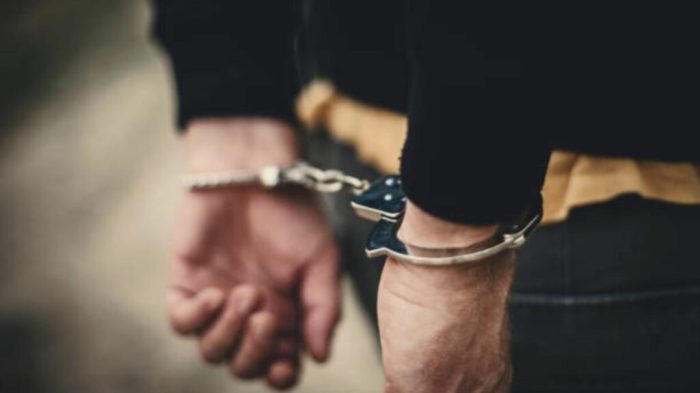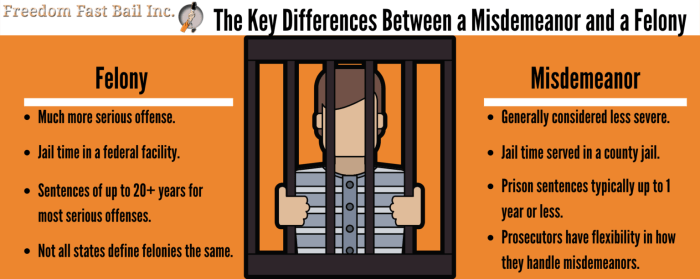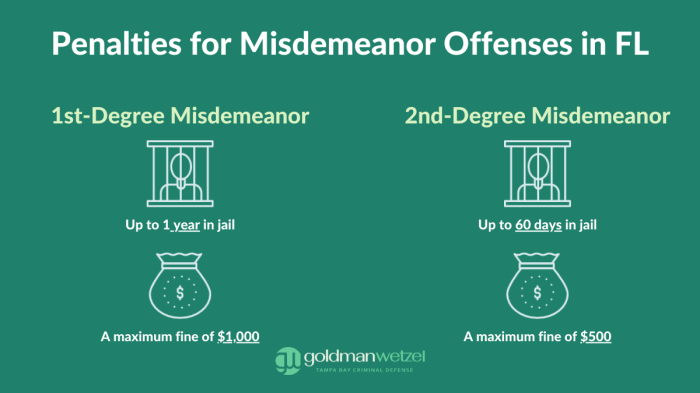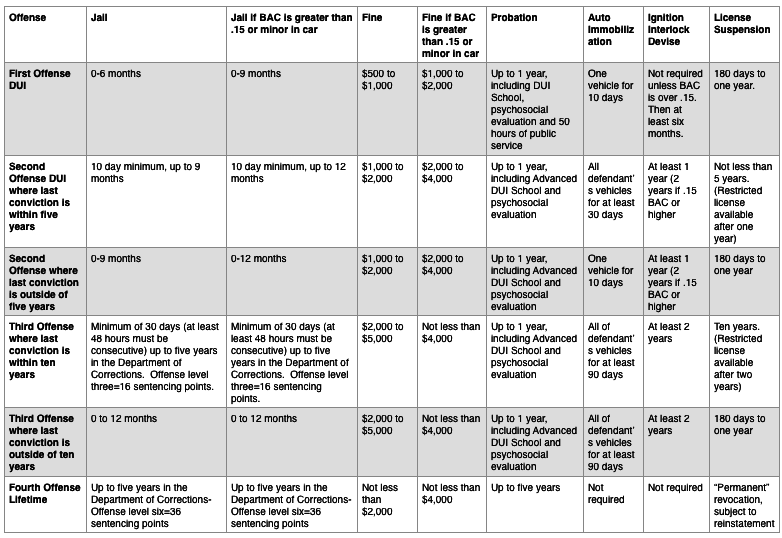State of Florida misdemeanor exceptions present a nuanced legal landscape, where specific criteria and procedures govern the handling of misdemeanor charges. This comprehensive guide delves into the definition of misdemeanors in Florida, explores the various exceptions to these charges, and Artikels the procedures for filing and handling exceptions.
It also examines the potential consequences of granted or denied exceptions, providing valuable insights for individuals navigating the criminal justice system.
Definition of Misdemeanor in Florida

In the state of Florida, a misdemeanor is a criminal offense that is less serious than a felony. Misdemeanors are typically punishable by up to one year in jail, fines, or both. Common misdemeanors in Florida include:
- Petit theft
- Disorderly conduct
- Trespassing
- Driving under the influence (DUI)
Exceptions to Misdemeanor Charges in Florida

There are a number of exceptions to misdemeanor charges in Florida. These exceptions include:
Statute of limitations
The statute of limitations for misdemeanors in Florida is two years. This means that the state must file charges within two years of the date the offense was committed. If the state fails to do so, the charges will be dismissed.
Lack of probable cause, State of florida misdemeanor exceptions
In order to charge someone with a crime, the state must have probable cause to believe that the person committed the offense. Probable cause is a reasonable belief that a crime has been committed and that the person charged is responsible for the crime.
Self-defense
Self-defense is a legal defense to a misdemeanor charge. In order to use this defense, the defendant must show that they reasonably believed that they were in imminent danger of being harmed and that they used no more force than was necessary to protect themselves.
Procedures for Handling Misdemeanor Exceptions in Florida: State Of Florida Misdemeanor Exceptions

If you are charged with a misdemeanor in Florida, you have the right to file an exception to the charges. The exception must be filed within 20 days of the date you were arrested or issued a citation. The exception must be in writing and must state the grounds for the exception.
If the court grants your exception, the charges against you will be dismissed. If the court denies your exception, you will have the right to a trial.
Consequences of Misdemeanor Exceptions in Florida
If your exception to a misdemeanor charge is granted, the charges against you will be dismissed. This means that you will not have a criminal record for the offense. However, if your exception is denied, you could be found guilty of the misdemeanor and sentenced to jail, fines, or both.
Resources for Misdemeanor Exceptions in Florida

- The Florida Bar Association
- The Florida Public Defender Association
- The Florida Department of Corrections
FAQ Section
What constitutes a misdemeanor in the state of Florida?
In Florida, a misdemeanor is a criminal offense punishable by a maximum of one year in jail or a fine of up to $1,000, or both.
What are some common exceptions to misdemeanor charges in Florida?
Exceptions to misdemeanor charges in Florida include self-defense, defense of others, and insanity.
How does one file for an exception to a misdemeanor charge in Florida?
To file for an exception to a misdemeanor charge in Florida, the defendant must submit a written motion to the court, stating the grounds for the exception and providing supporting evidence.